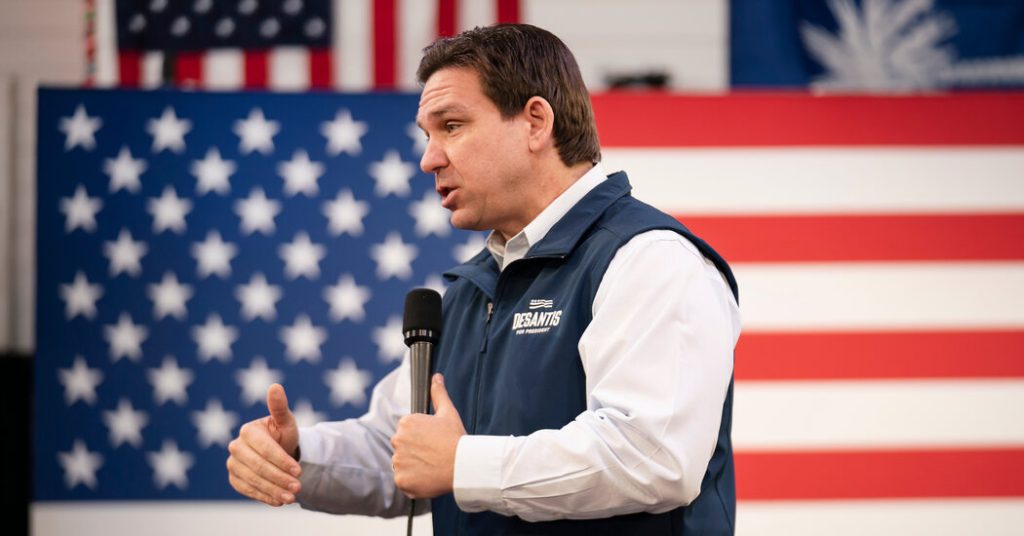Governor Ron DeSantis of Florida signed a law banning abortions after six weeks of pregnancy last spring, which sparked controversy and opposition among the state’s residents. As he was preparing to run for president, DeSantis took a bold step into cultural conservatism in an attempt to appeal to Republican primary voters. However, public opinion in Florida indicated widespread disapproval of the strict abortion law, raising questions about its impact on the state’s politics and the upcoming election.
DeSantis ultimately withdrew from the presidential race in January, and recent developments suggest a shift away from aggressive culture wars in Florida. The state’s voters have chosen to protect or expand abortion rights in recent ballot measures, highlighting the importance of this issue in the political landscape. A proposed constitutional amendment, known as Amendment 4, seeks to allow abortions up to about 24 weeks of pregnancy, facing opposition campaigns that view the language as too far-reaching.
Some Floridians, including Republicans, have expressed concerns about DeSantis’s pursuit of divisive policies ahead of his presidential run, prompting speculation about potential changes to align with the diverse electorate. The governor and Republican lawmakers have pursued fewer culture war fights in the legislative session, indicating a possible shift in priorities. National Democrats believe that the abortion ballot measure could put Florida in play, despite challenges such as a Democratic voter registration disadvantage.
DeSantis has not heavily campaigned on the ban he signed, instead focusing on other issues such as promoting state parks and Gulf red snapper season. State Senator Lauren Book criticized the ban, attributing it to DeSantis’s presidential aspirations and resulting in negative consequences for women. Florida’s political landscape is complex, with a combination of Republican leadership and support for liberal ballot proposals, reflecting the state’s diverse demographic and cultural makeup.
Before the 15-week abortion ban in 2022, Florida allowed abortions up to 24 weeks, a policy influenced by legal precedent rather than public opinion. The conservative-leaning Florida Supreme Court reversed the previous ruling in April, enabling stricter abortion restrictions under DeSantis’s administration. Despite the ban, there was an increase in abortions in Florida last year, as women from other states with stricter laws sought the procedure in Florida. Organizations like the Florida Access Network are working to support women in need of abortion services.
As Florida prepares for upcoming elections, the impact of abortion rights on the political landscape remains uncertain. The proposed constitutional amendment, along with broader issues related to cultural conservatism and voter sentiment, will play a crucial role in shaping the state’s future. DeSantis’s leadership, campaign strategies, and engagement with key issues like abortion will continue to influence Florida’s political direction in the coming months.


